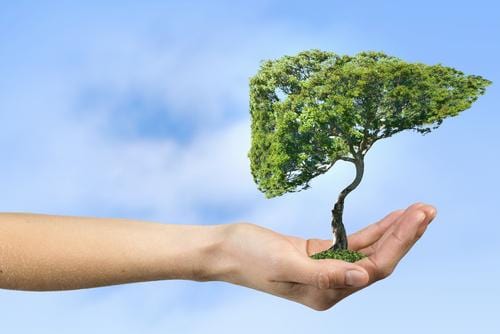As we head into the festive season, office parties and family gatherings can mean that we drink more than usual. Given that we are approaching Alcohol Awareness Week, we thought we'd look at some natural options for liver support, and top tips to beat a hangover.
Natural Liver Support
The liver is capable of amazing things – detoxification, hormone and nutrient synthesis, and even regeneration – but many of us take this organ for granted and don't give it the support it needs.
A fatty, high sugar diet, little exercise, and smoking all put pressure on the liver, compromising its ability to clear toxins from the body. Environmental pollutants add to this burden, as do drugs (prescription and non-prescription) and alcohol. Lifestyle and dietary factors are key to good liver health, and a healthy liver can improve our chances of preventing or overcoming a variety of health conditions.
Lifestyle and liver health
Lifestyle choices that help to support liver health include:
- Getting regular exercise
- Managing stress effectively
- Avoiding smoking
- Maintaining a healthy body weight
- Avoid overuse of acetaminophen and other medications that can harm the liver
- Vaccinating against hepatitis A and B
- Practicing safe sex and avoiding sharing razors, toothbrushes, and needles (as there's no vaccine for hepatitis C)
- Avoiding toxins found in some insecticides, cleaning products, and aerosols.
Diet and liver health
Everything we eat and drink is processed by the liver, so it's important to keep toxins, saturated fats, and sugars to a minimum and ensure a good intake of beneficial nutrients. In practice, this means eating:
- A high-fibre diet
- Plenty of fruits and vegetables
- Lean protein sources such as legumes (chickpeas and lentils, for example)
- Whole grains.
It also means cutting back on processed foods, which will help you to avoid or minimise your intake of:
- Trans fats (found in many processed foods such as cookies, cakes, and spreads, for example)
- Added sugar and salt
- Refined carbohydrates
- Saturated fat and cholesterol (found mainly in animal products).
Natural health products for liver support
Substances that support liver health are called hepatoprotectants, and include a range of antioxidant nutrients, and other polyphenols from herbal extracts. One of the most popular natural products for liver support is milk thistle, which contains active constituents called silymarins that help protect liver cells from damage.
glutathione (GSH) and superoxide dismutase (SOD) (Pradhan et al., 2006). These key antioxidant enzymes are typically depleted by alcohol, leaving the body vulnerable to free radical attack; by enhancing GSH and SOD, milk thistle can help guard against oxidative damage associated with AcH enzymes (Wang et al., 2016).
As milk thistle can affect the metabolism of certain drugs, it is important to talk to your physician prior to taking any supplements containing this herb.
If you'll find it hard to avoid having a boozy festive season, consider supporting your liver with milk thistle and a daily liver complex, even on days you don't drink.
It's also a good idea to stay hydrated (drink a glass of water between alcoholic drinks), and to ensure you have a good supply of the nutrients your body needs to process acetaldehyde (AcH), the chemical that causes hangover symptoms.
AcH is a highly toxic compound created as the body breaks down alcohol. It is highly reactive and can cause serious damage to the liver, brain, and other organs and tissues (McCarty, 2013). And, as levels of AcH increase in your blood, this can lead to increased sweating, heart rate, and respiration, a dry mouth and throat, nausea, vomiting, and a hangover headache (Eriksson, 2001).
To convert AcH into the less damaging substance acetate, you need a variety of nutrients (Catazaro & Brecher, 2013). These include:
- Vitamin B1 (thiamin)
- Vitamin B2 (riboflavin)
- Vitamin B3 (niacin)
- Vitamin B6 (pyridoxine)
- Vitamin B12 (methylcobalamin)
- Vitamin C.
Rehydration products can help with some symptoms of a hangover, but these don't necessarily help the body to flush out AcH. What's more, alcohol reduces the absorption of some of the nutrients needed to convert AcH to acetate! As such, it's a good idea to take a daily multivitamin that includes the nutrients above, alongside any herbal remedies for natural liver support.
As milk thistle and other herbs can affect the metabolism of certain drugs, it is important to talk to your physician prior to taking any herbal supplements.
References
Ali, M., Khan, T., Fatima, K., et al. (2017). Selected hepatoprotective herbal medicines: Evidence from ethnomedicinal applications, animal models, and possible mechanism of actions. Phytother Res. 2017 Oct 19. doi: 10.1002/ptr.5957. [Epub ahead of print]
Brieudes, V., Angelis, A., Vougogiannopoulou, K., et al. (2016). Phytochemical Analysis and Antioxidant Potential of the Phytonutrient-Rich Decoction of Cichorium spinosum and C. intybus.Planta Med, Jul;82(11-12):1070-8.
Catazaro, J.R., & Brecher, A.S. (2013). The influence of B-complex vitamins upon the prolongation of prothrombin time by acetaldehyde. Blood Coagul Fibrinolysis, Jul;24(5):477-83.
Eriksson, C.J. (2001). The role of acetaldehyde in the actions of alcohol (update 2000). Alcohol Clin Exp Res, May;25(5 Suppl ISBRA):15S-32S.
Fidèle, N., Joseph, B., Emmanuel, T., & Théophile, D. (2017). Hypolipidemic, antioxidant and anti-atherosclerogenic effect of aqueous extract leaves of Cassia. occidentalis Linn (Caesalpiniaceae) in diet-induced hypercholesterolemic rats. BMC Complement Altern Med, Jan 25;17(1):76.
Ksouri, R., Falleh, H., Megdiche, W., et al. (2009). Antioxidant and antimicrobial activities of the edible medicinal halophyte Tamarix gallica L. and related polyphenolic constituents. Food Chem Toxicol, Aug;47(8):2083-91.
McCarty, M.F. (2013). Nutraceutical strategies for ameliorating the toxic effects of alcohol. Med Hypotheses, Apr;80(4):456-62.
Pradhan, S.C., & Girish, C. (2006). Hepatoprotective herbal drug, silymarin from experimental pharmacology to clinical medicine. Indian J Med Res. Nov;124(5):491-504.
Sehrawat, A., & Sultana, S. (2006). Tamarix gallica ameliorates thioacetamide-induced hepatic oxidative stress and hyperproliferative response in Wistar rats. J Enzyme Inhib Med Chem, Apr;21(2):215-23.
Wang, F., Li, Y., Zhang, Y.J., et al. (2016). Natural Products for the Prevention and Treatment of Hangover and Alcohol Use Disorder. Molecules, Jan 7;21(1). pii: E64.


